I'm working in a small antirootkit and i need add a functionality that is:
- Delete all files on directory of rootkit and in yours possible subdiretories.
So, firstly is necessary know all these directories and files, right?
To this, i have code below that already make half of this task. He enumerate all directories and files of a specific directory but not "see" subdirectories ( files and folders).
Eg:
Output:
Code:
#include <ntifs.h>
typedef unsigned int UINT;
NTSTATUS EnumFilesInDir()
{
HANDLE hFile = NULL;
UNICODE_STRING szFileName = { 0 };
OBJECT_ATTRIBUTES Oa = { 0 };
NTSTATUS ntStatus = 0;
IO_STATUS_BLOCK Iosb = { 0 };
UINT uSize = sizeof(FILE_BOTH_DIR_INFORMATION);
FILE_BOTH_DIR_INFORMATION *pfbInfo = NULL;
BOOLEAN bIsStarted = TRUE;
RtlInitUnicodeString(&szFileName, L"\\??\\C:\\MyDirectory");
InitializeObjectAttributes(&Oa, &szFileName, OBJ_CASE_INSENSITIVE | OBJ_KERNEL_HANDLE, NULL, NULL);
ntStatus = ZwCreateFile(&hFile, GENERIC_READ | SYNCHRONIZE, &Oa, &Iosb, 0, FILE_ATTRIBUTE_NORMAL, FILE_SHARE_READ, FILE_OPEN, FILE_SYNCHRONOUS_IO_NONALERT, NULL, 0);
if (!NT_SUCCESS(ntStatus)) { return ntStatus; }
pfbInfo = ExAllocatePoolWithTag(PagedPool, uSize, '0000');
if (pfbInfo == NULL)
{
ZwClose(hFile); return STATUS_NO_MEMORY;
}
while (TRUE)
{
lbl_retry:
RtlZeroMemory(pfbInfo, uSize);
ntStatus = ZwQueryDirectoryFile(hFile, 0, NULL, NULL, &Iosb, pfbInfo, uSize, FileBothDirectoryInformation, FALSE, NULL, bIsStarted);
if (STATUS_BUFFER_OVERFLOW == ntStatus) {
ExFreePoolWithTag(pfbInfo, '000');
uSize = uSize * 2;
pfbInfo = ExAllocatePoolWithTag(PagedPool, uSize, '0000');
if (pfbInfo == NULL) { ZwClose(hFile); return STATUS_NO_MEMORY; }
goto lbl_retry;
}
else if (STATUS_NO_MORE_FILES == ntStatus)
{
ExFreePoolWithTag(pfbInfo, '000');
ZwClose(hFile); return STATUS_SUCCESS;
}
else if (STATUS_SUCCESS != ntStatus)
{
ExFreePoolWithTag(pfbInfo, '000');
ZwClose(hFile);
return ntStatus;
}
if (bIsStarted)
{
bIsStarted = FALSE;
}
while (TRUE)
{
WCHAR * szWellFormedFileName = ExAllocatePoolWithTag(PagedPool, (pfbInfo->FileNameLength + sizeof(WCHAR)), '0001');
if (szWellFormedFileName)
{
RtlZeroMemory(szWellFormedFileName, (pfbInfo->FileNameLength + sizeof(WCHAR)));
RtlCopyMemory(szWellFormedFileName, pfbInfo->FileName, pfbInfo->FileNameLength);
//KdPrint(("File name is: %S\n", szWellFormedFileName));
KdPrint((" %S\n", szWellFormedFileName));
ExFreePoolWithTag(szWellFormedFileName, '000');
}
if (pfbInfo->NextEntryOffset == 0) { break; }
pfbInfo += pfbInfo->NextEntryOffset;
}
}
ZwClose(hFile);
ExFreePoolWithTag(pfbInfo, '000');
return ntStatus;
}
So, how do this?
Thank in advance by any help or suggestion.
--------------------------------------------------------EDIT:--------------------------------------------------------------------
I found a possible solution, but i'm getting a BSOD in this line:
if ( (*pDir)->NextEntryOffset)
In KernelFindNextFile method.
Some suggestion?
Here is the code that i found:
#include <ntifs.h>
#include <stdlib.h>
HANDLE KernelCreateFile(IN PUNICODE_STRING pstrFile,IN BOOLEAN bIsDir)
{
HANDLE hFile = NULL;
NTSTATUS Status = STATUS_UNSUCCESSFUL;
IO_STATUS_BLOCK StatusBlock = {0};
ULONG ulShareAccess = FILE_SHARE_READ|FILE_SHARE_WRITE|FILE_SHARE_DELETE;
ULONG ulCreateOpt = FILE_SYNCHRONOUS_IO_NONALERT;
OBJECT_ATTRIBUTES objAttrib = {0};
ULONG ulAttributes = OBJ_CASE_INSENSITIVE|OBJ_KERNEL_HANDLE;
InitializeObjectAttributes(&objAttrib,pstrFile,ulAttributes,NULL,NULL);
ulCreateOpt |= bIsDir?FILE_DIRECTORY_FILE:FILE_NON_DIRECTORY_FILE;
Status = ZwCreateFile(
&hFile,
GENERIC_ALL,
&objAttrib,
&StatusBlock,
0,
FILE_ATTRIBUTE_NORMAL,
ulShareAccess,
FILE_OPEN_IF,
ulCreateOpt,
NULL,
0);
if (!NT_SUCCESS(Status))
{
return (HANDLE)-1;
}
return hFile;
}
PFILE_BOTH_DIR_INFORMATION KernelFindFirstFile(IN HANDLE hFile,IN ULONG ulLen,OUT PFILE_BOTH_DIR_INFORMATION pDir)
{
NTSTATUS Status = STATUS_UNSUCCESSFUL;
IO_STATUS_BLOCK StatusBlock = {0};
PFILE_BOTH_DIR_INFORMATION pFileList = (PFILE_BOTH_DIR_INFORMATION)ExAllocatePool(PagedPool,ulLen);
Status = ZwQueryDirectoryFile(
hFile,NULL,NULL,NULL,
&StatusBlock,
pDir,
ulLen,
FileBothDirectoryInformation,
TRUE,
NULL,
FALSE);
RtlCopyMemory(pFileList,pDir,ulLen);
Status = ZwQueryDirectoryFile(
hFile,NULL,NULL,NULL,
&StatusBlock,
pFileList,
ulLen,
FileBothDirectoryInformation,
FALSE,
NULL,
FALSE);
return pFileList;
}
NTSTATUS KernelFindNextFile(IN OUT PFILE_BOTH_DIR_INFORMATION* pDir)
{
if ( (*pDir)->NextEntryOffset)
{
(*pDir)=(PFILE_BOTH_DIR_INFORMATION)((UINT32)(*pDir)+(*pDir)->NextEntryOffset);
return STATUS_SUCCESS;
}
return STATUS_UNSUCCESSFUL;
}
void Traversal()
{
UNICODE_STRING ustrFolder = {0};
WCHAR szSymbol[0x512] = L"\\??\\";
UNICODE_STRING ustrPath = RTL_CONSTANT_STRING(L"C:\\MyDirectory");
HANDLE hFile = NULL;
SIZE_T nFileInfoSize = sizeof(FILE_BOTH_DIR_INFORMATION)+270*sizeof(WCHAR);
SIZE_T nSize = nFileInfoSize*0x256;
char strFileName[0x256] = {0};
PFILE_BOTH_DIR_INFORMATION pFileListBuf = NULL;
PFILE_BOTH_DIR_INFORMATION pFileList = NULL;
PFILE_BOTH_DIR_INFORMATION pFileDirInfo = (PFILE_BOTH_DIR_INFORMATION)ExAllocatePool(PagedPool,nSize);
wcscat_s(szSymbol,_countof(szSymbol),ustrPath.Buffer);
RtlInitUnicodeString(&ustrFolder,szSymbol);
hFile = KernelCreateFile(&ustrFolder,TRUE);
pFileList = pFileListBuf;
KernelFindFirstFile(hFile,nSize,pFileDirInfo);
if (pFileList)
{
RtlZeroMemory(strFileName,0x256);
RtlCopyMemory(strFileName,pFileDirInfo->FileName,pFileDirInfo->FileNameLength);
if (strcmp(strFileName,"..")!=0 || strcmp(strFileName,".")!=0)
{
if (pFileDirInfo->FileAttributes & FILE_ATTRIBUTE_DIRECTORY)
{
DbgPrint("[Directory]%S\n",strFileName);
}
else
{
DbgPrint("[File]%S\n",strFileName);
}
}
}
while (NT_SUCCESS(KernelFindNextFile(&pFileList)))
{
RtlZeroMemory(strFileName,0x256);
RtlCopyMemory(strFileName,pFileList->FileName,pFileList->FileNameLength);
if (strcmp(strFileName,"..")==0 || strcmp(strFileName,".")==0)
{
continue;
}
if (pFileList->FileAttributes & FILE_ATTRIBUTE_DIRECTORY)
{
DbgPrint("[Directory]%S\n",strFileName);
}
else
{
DbgPrint("[File]%S\n",strFileName);
}
}
RtlZeroMemory(strFileName,0x256);
RtlCopyMemory(strFileName,pFileListBuf->FileName,pFileListBuf->FileNameLength);
if (strcmp(strFileName,"..")!=0 || strcmp(strFileName,".")!=0)
{
if (pFileDirInfo->FileAttributes & FILE_ATTRIBUTE_DIRECTORY)
{
DbgPrint("[Directory]%S\n",strFileName);
}
else
{
DbgPrint("[File]%S\n",strFileName);
}
ExFreePool(pFileListBuf);
ExFreePool(pFileDirInfo);
}
}
BSOD:
FAULTING_SOURCE_LINE_NUMBER: 263
FAULTING_SOURCE_CODE:
259: }
260:
261: NTSTATUS KernelFindNextFile(IN OUT PFILE_BOTH_DIR_INFORMATION* pDir)
262: {
> 263: if ((*pDir)->NextEntryOffset)
264: {
265: (*pDir) = (PFILE_BOTH_DIR_INFORMATION)((UINT32)(*pDir) + (*pDir)->NextEntryOffset);
266: return STATUS_SUCCESS;
267: }
268:

